1. Introduction
The re-emergence of genuine rightwing thought has coincided with the reemergence of philosophy.
In the Modern West, i.e., in the Liberal West, politicians and men of action have treated philosophy as outdated; perhaps philosophy was historically necessary for the advent of modern natural science. Since most men of action are satisfied that science has brushed aside religious cosmology; that, indeed, all life is something of a “struggle for survival,” and that all claims to justice and morality are merely weapons in this struggle, philosophy has been viewed as something less impressive and not so needful. An interest in ancient Greek philosophy has been considered strictly an antiquarian affair.
Not so any longer. A series of philosophers and thinkers have broken through, and we understand once again the problem of Socrates. The inner meaning of dialectics has been re-proven, re-experienced, and re-established. Many men in the West now understand that dialectical analysis produces spiritual mastery and hence resentment and hatred in the uninitiated. It was thought that, in the Liberal West, Socrates would have been treated with condescending respect. We know again that society as society and hence liberal society cannot bear to look at or hear about the person of Socrates, at least not an unvarnished Socrates.
One error has resulted from this—well, many errors are resulting from it but there is one in particular I want to address, namely, the belief that this antagonism between Socrates and society exists because Socrates genuinely corrupts, that dialectics destroys or makes men worse than they were before philosophy. Western men have rediscovered the dangerousness of philosophy but that rediscovery has included—understandably—doubts about its goodness.
I will address a single question in this essay, namely, the Aristotelian question of “equipment,” known in our times as “property” and “owned space.” The right-wing has rediscovered the need and importance of equipment for virtue. There are professors and thinkers, both conservative and liberal, who are trying to paint this concern for equipment as emotional insecurity, “unsafe,” and “radical.” The conservative professors are offended that their students demand that equipment and virtue be closely tied; they’ve spent decades forfeiting their universities and don’t like the youthful complaint that they failed. They see this youthful disgust with their institutions as zealousness. The leftists on the other hand just cannot bear to hear it said that people need things—equipment, property, a good education, a good disposition, etc.—to be virtuous.
While I am only going to discuss equipment in this essay, this introduction here will serve as a general background for a series of essays and talks on philosophy as a right-wing phenomenon.
2. Equipment
Aristotle’s Nicomachean Ethics offends egalitarian sensibilities. Leaving aside Aristotle’s promotion of natural mastery, he teaches that virtue requires equipment, meaning that not anyone can choose to be virtuous; many or most men do not get the chance to be virtuous because they either do not have equipment, or have to spend their time getting the equipment (instead of liberally educating themselves).
It is true, a thinker can stretch “equipment” to mean something less than being a landed aristocrat by pointing out various provisions men might take to secure their personal independence. Consider Jünger’s “Anarch” in Eumesville. The protagonist of the novel is not a landed aristocrat but, considering his circumstances, he retains his independence; he can think for himself and act for himself. It is true, when he acts on his own behalf, he won’t be acting in a grand or magnanimous manner. Not everything is possible.
Even in a situation like the Anarch, where men without any real power are shown a way they too might be free, there are limits that people often find unsavory. For example, the family man: a powerless family man seems cut off from living as the Anarch lives—unless he be willing to abandon wife and child to take to the woods. Even then, he needs a wood. There might be a path for the powerless family man, but the point is that there also might not; not everything is possible.
That not everything is possible might be easily admitted, but easy admission would mean the point is missed. I can hear someone saying, “yes, not all things are possible, therefore we should learn to humbly accept the limitations we have. A truly good man will no want more than his portion.” Okay sure, yes, it might be good to humbly accept the limitations we have—but even this might be beyond the ability of most men.
The reason that people are offended at hearing that not everything is possible is because it contains the possibility that they are bad, petty, resentful, etc., through no fault of their own. Let the word “equipment” mean what it truly means: ability. Education makes men able. An education is a type of equipment and is a type that perhaps is almost always necessary and that, when men don’t have it, they turn out bad. And then we learn that, not education, but a good education is what is needed and that many men who go in for education are made worse in their attempts, their sincere or genuine attempts, at becoming good. That men need equipment to be good fundamentally means that men who are bad are so through no fault of their own, that they didn’t have the chance to be good. And then all sorts of offensive things result from this.
A man who doesn’t have a chance to be virtuous would not, according to Aristotle, have the chance to have a genuine friend. He might betray his friends; he might betray virtuous friends precisely because they are virtuous and he is not. Genuinely virtuous men might not like him because he is not virtuous. He might not like virtuous men because he is not virtuous. And all this he might not be able to help.
Suppose gods were more likely to show favor to the virtuous; it is said, “God helps those who help themselves.”
It’s my claim that these offensive truths must be admitted so that we can have good things and rid ourselves of this decrepit regime.
3. Equipped Politics (Armed Politics)
Good politics require some level of virtue. Every political order must draw a line, and those falling below the line would need to be excluded. But since not everyone below the line will be easily set outside the bounds (or definition) of the political society, they would need to be what is called “oppressed.” – I have said as much in newspapers before (except I obviously don’t call distinction “oppression”) and the typical response is: “yea, well, maybe we will just have to oppress you!” It’s really a vile sort of response, where they admit you’re right and offer to attack you for being so. They evidently agree with you but consider it evil to say the truth out loud.
Men who deny this—and denial appears to be normal—not only accomplish nothing through their denial, though I guess this can be disputed, but they cut themselves off from the salutary consequences of admitting the truth of the statement. Once it is admitted that not everything is possible, men can start avoiding what is not possible and commit themselves to what is. Men should not try to embody the virtue of aristocracy when in fact they should devote themselves to an incredibly private life of exercise, writing, eating healthy and laying low; maybe they should devote themselves to an institution; maybe they should take to the hills. In any event, what should be done cannot be ascertained or even contemplated so long as it is asserted that the best sort of happiness is available to all without distinction, or that no greater happiness exists than what the least capable men can enjoy.
Desiring happiness does not make a man able to be so. Only being able to achieve a small amount of happiness does not mean, however equal you think yourself, that your happiness is the limit of other men’s happiness.
If we admit what is possible, we can responsibly demarcate what should and shouldn’t be allowed in political society, and, if we do that, we might avoid collapse. We could even put an end to this frivolous inflation of our currency. Our poor currency, which is constantly debased for the maintenance of the depressing and worse than useless ways of living—shouldn’t something be done? But we cannot do anything because doing anything means openly, thoughtfully, explicitly drawing a line between citizens and non-citizens, or between the good citizens and the bad citizens. “Oh yea, maybe we’ll draw the line and you’ll be the bad citizen!”
The American or Western leftist is caught in this view where there is, indeed, a line; but the line is drawn between those who draw lines and those who refuse to admit they draw lines, such that hypocrisy is required to be admitted into polite society (or society at all). The only men who are attacking, excluding, “oppressing” are the men who refuse to admit they are doing any of these things. The only men discriminating against others are the men who denounce anyone who discriminates against others. Such is our situation.
The typical—and lame—conservative response is to say:
“Leftists are hypocrites! They should stop discriminating. We agree that discriminating is evil, but the Democrats are the real racists, the real discriminators.”
That is defeatist conservatism, whose greatest achievement could only ever amount to a sort of Civil Rights carve out for white people or white Christians; this kind of conservatism can only “win” once it has lost, once white people are ghettoized or marginalized. “One day Sohrab Ahmari will draft new legislation for the American Dhimmi laws. We can have our own version of the Millet system!”
This kind of “conservative” response is devoid of any serious notion of Right. There is no, to continue with the Aristotelian usage, authoritative element. This argument amounts to pacifism: “you say you don’t want to hurt people but you’re hurting me, can we please be consistent and establish a world pacifism where no one hurts anyone.” Contrarily, a man or a people possessing the authoritative element would respond: "Sure… There can be a world pacifism, but under the protection of our guns (equipment, arms)."
In other words, the true conservative answer is to say: yes, there is going to be a line. The question is to make it a good one, not to do whatever can be done to avoid admitting we have one. The faux-conservative answer today— “hey, you say there isn’t a line but you have one. You need to treat us as if there isn’t such a line”—is doomed to failure; it is the famous “Washington Generals” strategy.
4. Wisdom and Politics
The offensive claim, that equipment is needed for virtue, must be admitted if a responsible line can be drawn between citizen and non-citizen, good citizen and bad citizen. I have just argued that the line cannot be avoided, however much it offends liberals and apparently scares the conservatives.
(I think conservatives really feel that, if they inspire a “fellow citizen” to red hot anger, they deserve the anger. They’re very impressed by their own red-hot anger and think, when they see it in the leftist, that it has the same dignity or quality. This is a mere hypothesis, but some explanation is needed as to why they are so cowardly. How did they let their institutions go to the dogs? How did they let themselves get ruled by HR women and worse? Why are they still so contemptible in the face of this self-evident decline? Some answer to these questions is needed.)
So, let it be granted for the sake of argument that a line cannot be avoided, must be drawn. Some men are going to have to take it upon themselves to decide what kind of men (and which men) are going to be elevated to the ruling offices and places of honor and which kind of men are kept out and potentially put down. Here, the need for wisdom enters in again but not under the guise of “equipment.” I must leave this for a later discussion. The upshot: men would like to avoid this decision by submitting it to some impartial formula. For example, a man might say “we must distinguish between good and bad; I leave it to the Bible. Let’s let the Bible decide whom we should consider a citizen in good standing.” You can replace “Bible” with all sorts of standards and standards posing as non-standards. But a little investigation would reveal the need to interpret the Bible correctly and so on. Wisdom rushes in as the only solution to the political problem.
5. Conclusion
In sum: the reasons for disliking the truth uncovered by philosophy are self-defeating because they involve men in attempting the impossible for the sake of avoiding the dangerous and disagreeable. Philosophy involves men in the dangerous and disagreeable, and while this might lead to the undoing and corruption of some, it is not the fault of philosophy. Recovering philosophy and recovering the dangerousness of philosophy are one and the same.

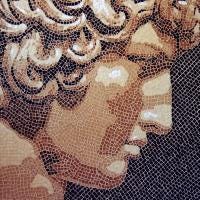




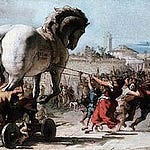


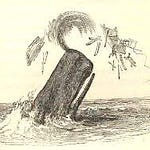
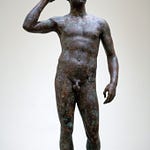
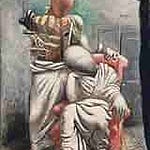
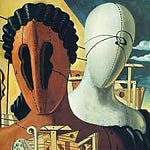
Share this post